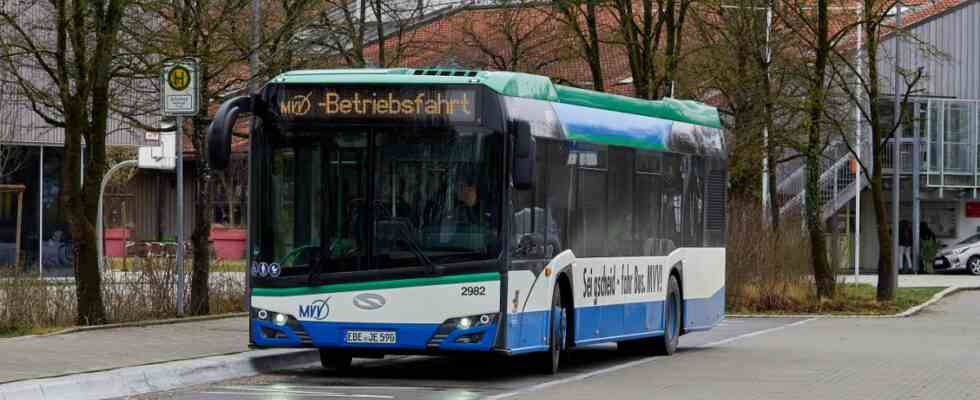Last but not least, the size of the greater community of Vaterstetten affects the expansion in area – and that brings with it a number of problems. At least for all citizens who live a little further away from train stations and supermarkets, and there have been more and more of them in recent years. One way in which local public transport could be improved in peripheral areas and at off-peak times has now been presented to the municipal council: a dial-a-bus system could close the gap between taxis and buses.
How this can work in practice was presented by Robert Schotten and Clemens Deyerling from the Omobi company, which already offers a dial-a-bus service in Murnau and Holzkirchen. This differs from the classic public bus in that there are no fixed routes and timetables. Instead, the service can be used in a similar way to a taxi – but you have to register as a user beforehand. This is possible via smartphone, but also by telephone, just like booking a ride. The prices, on the other hand, are more in the omnibus range, in Murnau a trip costs 2.50 euros, in Holzkirchen two euros.
The representatives of the on-call bus company emphasize the flexibility of their system
According to the providers, the advantage of their system over existing dial-a-bus services is the innovative route planning. To do this, Omobi uses specially developed software that determines the optimal connection between the various entry and exit points. This also increases the capacity, so in Murnau there are now two minibuses with a capacity utilization of around 100 passengers per day – a passenger count carried out a few years earlier showed 18 passengers per day for the regular bus.
There were a number of questions from the committee, Mayor Leonhard Spitzauer (CSU) wanted to know how the stops should be designed and what the accessibility status was. According to the Omobi representatives, there is no need for stops in the true sense of the word, theoretically the minibus can pick up and drop off passengers anywhere that private individuals can do this with their cars. For legal reasons, however, fixed breakpoints have been stored in the system, which are more than a hundred in the respective area of operation. However, no structural measures are required to set up such a stop, and more can easily be added if necessary.
However, this also means that the breakpoints are not specially designed to be barrier-free. This was criticized by the second mayor, Maria Wirnitzer, and Cordula Koch (both SPD). After all, the municipality spends a lot of money to make the bus stops barrier-free, and this standard should also apply to a dial-a-bus. According to Deyerling, you also have other options. For example, the commissioning municipality can request barrier-free vehicles, where you can also get on with a wheelchair, for example. Also, the drivers would assist with boarding and disembarking. In addition, a stop near the apartment is also a contribution to accessibility.
Does a dial-a-bus mean competition to existing local transport?
Economic promoter Georg Kast wanted to know what costs the municipality would have to face if one opted for the minibus service. A question that the Omobi representatives were obviously not comfortable with. After lengthy explanations about subsidies and refinancing through ticket income, the sum of 100,000 euros deficit, which the municipality of Murnau has to compensate, was reached.
The speakers were almost indignant when Josef Mittermeier (SPD) indicated quite clearly that the on-demand buses would dig the water out of the existing local transport system. We are here to present the system, not to justify it, says Deyerling. In addition, it is up to the municipality to define the on-call bus service and to eliminate any conflicts with the existing stock.
Benedikt Weber (CSU) expressed a little more sympathy for the on-demand bus, he pointed out that the utilization of the buses is not always optimal: “Sometimes there is a lot of air going through the area.” In addition, there have been sharp increases in costs for scheduled services in recent years, “I would rather invest the money in the on-demand bus”. Klaus Willenberg (FDP) spoke out in favor of both: “It’s not about either-or, it’s about both-and.”
At least in the medium term, the regular service in the municipality will experience neither competition nor supplementation, because the committee has not yet decided whether and when a call bus will be on the road in the larger municipality.

